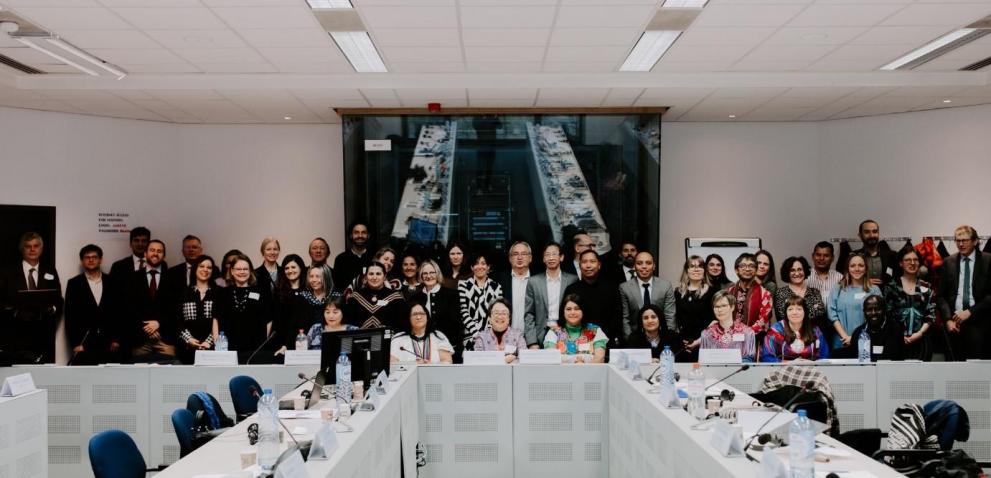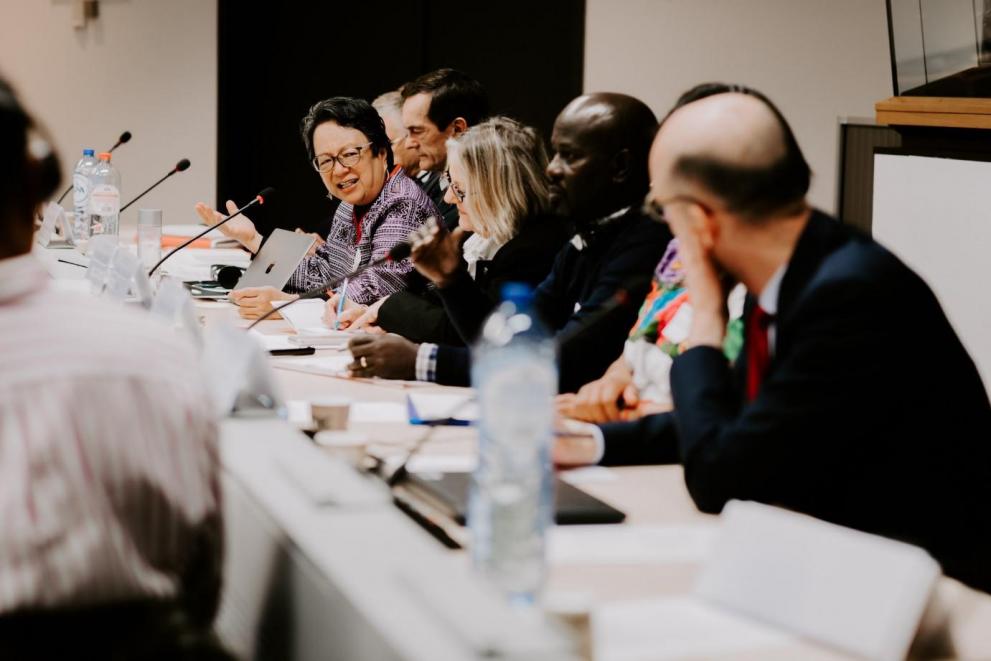
The roundtable consultations gathering representatives of indigenous peoples from all the continents, EU officials and international organisations took place in Brussels on 24 and 25 February, in the format of an interactive and dynamic dialogue. The event was organised under the Partnership Instrument of the European Union, managed by the Service for Foreign Policy Instruments (FPI).
Indigenous peoples represent 6.2% of the global population. They manage 11% of the world’s forests. In doing so, they have a critical role in protecting the planet’ biodiversity from being lost due to climate change. The EU has entered into Voluntary Partnership Agreements with tropical timber producing countries as a way to combat illegal logging. These agreements cover about 12% of the world’s total forested area, and account for 80% of the tropical timber trade. Such processes have contributed to securing the rights of indigenous peoples, as well as contributed to the implementation of the Indigenous and Tribal Peoples Convention (ILO 169).

The consultations addressed the ways in which the EU could enhance its policies and programs to prevent and address discrimination based on grounds of indigenous status and take action against violence against indigenous peoples and individuals in the context of land and natural resources in the protection of the environment, biodiversity and the climate.
Chrisitan Leffler, Deputy Secretary General of the European External Action Service highlighted that “The EU should remain a global defender of human rights issues in all EU external Action and should do it with both humility and stubbornness”
Ms Henriette Geiger, Director at Directorate-General for International Cooperation and Development highlighted the vulnerability of those fighting for land and the protection of the environment and recalled that: “We live on a planet increasingly under threat and voices for peaceful coexistence are silenced. […] We must leave no one behind, putting people and their rights at the centre of our action.”
The importance of intersectionality was also raised, Ms Olga Montufar, representative of Indigenous Peoples with Disabilities Global Network from Mexico said that: “Who believes, builds. Who builds, does. Who does, changes himself and the society he is living in.”
The event has confirmed that unilateral solutions to global challenges do not exist. Joint solutions should be found, based on past experiences of collaboration, as well as innovative thinking in order to ensure respect of human rights of indigenous peoples in all their diversity.
This round table is one of the actions, under the Service for Foreign Policy Instruments’ Policy Support Facility of the Partnership Instrument, the pilot project “Human rights policy support” that was launched in 2019 with EUR 1 million budget for a period of 18 months. This action reinforces the implementation of international human rights standards and best practices by third countries and promotes EU and international shared principles and values.
Find out more:
Details
- Publication date
- 26 February 2020
- Author
- Service for Foreign Policy Instruments
